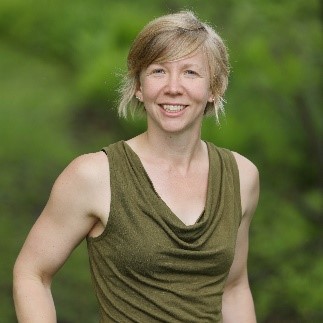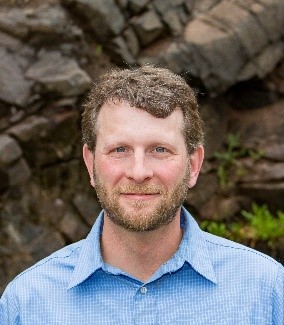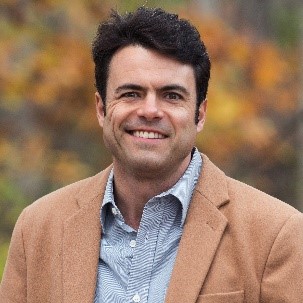The goal of this four-part online speaker series is to engage a wide variety of community members to discuss and better understand climate change and its effects on coastal forests in northeastern U.S. Participants will be able to better understand new strategies to create more resilient forests. Because the speaker series is online, it is open to all, but may be of special interest to municipal officials, resource managers, Avalonia Land Conservancy members, tribal leaders, private forest landowners, and other local land conservancy organizations. It is also open to students and teachers at local schools and colleges. Because climate change is occurring at a faster pace than traditional stewardship methods allow, these talks open up new research-based ways of thinking about forest management and its relationship to Long Island Sound. For example, read how Connecticut Sea Grant and Avalonia Land Trust are preparing the forest for the future.
History of New England Forests and Climate Change
 by Maria Janowiak, PhD is researcher and deputy director of the Northern Institute of Applied Climate Science, an organization led by the USDA Forest Service. Maria coordinates the Climate Change Response Framework activities in New England.
by Maria Janowiak, PhD is researcher and deputy director of the Northern Institute of Applied Climate Science, an organization led by the USDA Forest Service. Maria coordinates the Climate Change Response Framework activities in New England.
This lecture will provide a view of New England coastal forests in from pre-colonial contact to present. This will lead to discussion about the current dilemma facing land stewards in coastal New England: How to preserve native species and natural habitats threatened by climate change in ways that are innovative, but aligned with the values of informed stewardship.
View Video
Slides
Forest Management for Carbon Sequestration and Climate Adaptation

by Dr. Todd Ontl, PhD is a Research Scientist and Climate Adaptation Specialist for the Northern Institute of Applied Climate Science and Michigan Tech University, and coordinates the Institute’s forest carbon management outreach projects.
This talk will introduce the fundamental ideas on how adapting forests to changing climate conditions supports forest carbon sequestration and storage. Dr. Ontl will outline principles of carbon stocks and cycling within forest ecosystems and the impacts of management actions through the lens of climate risk and vulnerability, and various approaches for enhancing the carbon sequestration capacity of coastal forests in the northeastern U.S. This presentation will provide examples of how forest managers are integrating goals of climate adaptation with targets for increasing the carbon mitigation capacity of their forests, and provide a look ahead to opportunities in the region to support landowners and land trusts interested in forest carbon management.
Forest Carbon Menu of Adaptation and Mitigation Strategies and Approaches
View Video
Slides
Experimenting with Climate-Adaptive Forestry Practices: Challenges and Opportunities
 by Christopher Riely, a conservationist and Licensed Forester who works on a wide range of projects in southern New England through his practice Sweet Birch Consulting, LLC. From 2008 to 2019, he worked for Providence Water on managing the watershed lands surrounding the Scituate Reservoir, which supplies drinking water for 600,000 people in Rhode Island.
by Christopher Riely, a conservationist and Licensed Forester who works on a wide range of projects in southern New England through his practice Sweet Birch Consulting, LLC. From 2008 to 2019, he worked for Providence Water on managing the watershed lands surrounding the Scituate Reservoir, which supplies drinking water for 600,000 people in Rhode Island.
Following a brief overview of general forest climate adaptation strategies, this talk will present one experimental project begun in Scituate, Rhode Island, in 2015, when Mr. Riely helped manage 13,000 acres of forestland buffering the reservoirs for Rhode Island’s largest water utility. Site work included planting both native tree seedlings and non-native species projected to be adapted to future climate conditions, such as shortleaf pine and sweetgum. To assess deer impacts on one site, half the seedlings were planted inside a large exclosure fence. While foresters monitor early results, the project has provided significant educational value through engaging public audiences and a professional community of practice.
View Video
Slides
Brave New Worlds for Trees: Assisted Migration and the Study of Hoffman Preserve
by Dr. Juliana Barrett is an Extension Educator and Coastal Habitat Specialist with Connecticut Sea Grant and UConn Extension
Dr. Juliana Barrett, Principal Investigator for the grant that funded this speaker series, will describe the history of the Hoffman Preserve in Stonington, CT, and climate projections for 2050. Now underway, she presents a progress report on the careful selection of trees and shrubs that may withstand climate change in coastal N.E. Her work is guided by new ideas of assisted migration, or how to introduce tree species that can lead to more resilient forests. This project will involve the community in tree planting in a local forest, but more importantly, introduce people to new ideas about how to select and nurture the right tree for the right spot, and at the right time.
CT Sea Grant, Avalonia project looks to prepare forest for the future
View Video
Slides